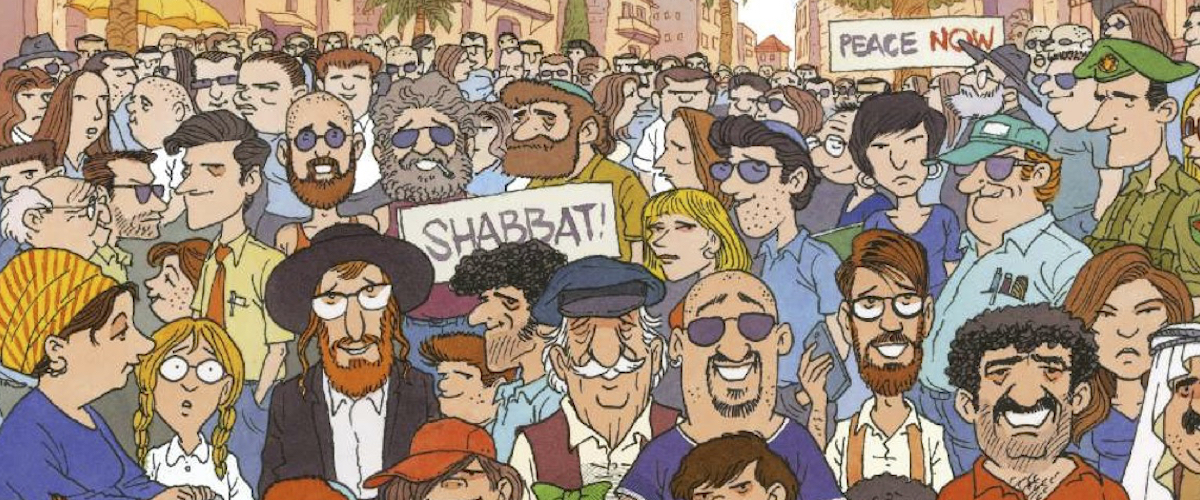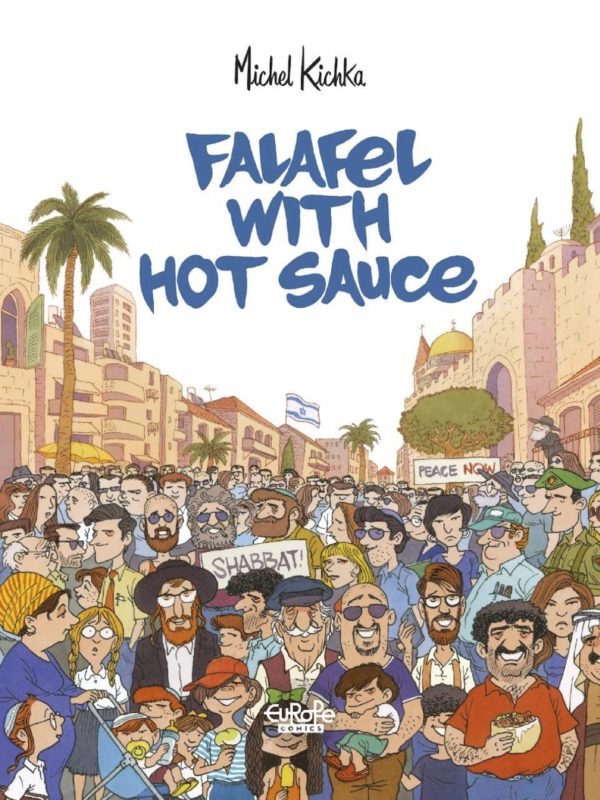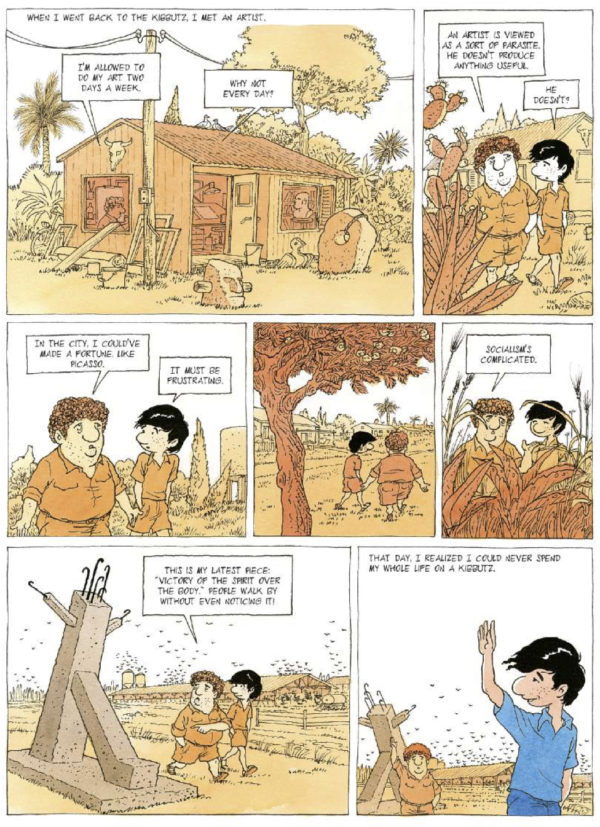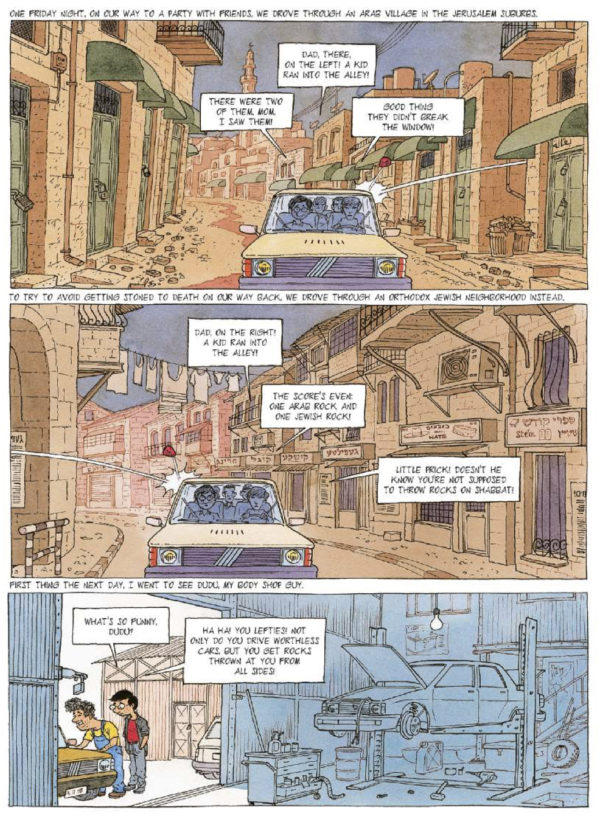Falafel with Hot Sauce
By Michel Kichka
Translated by Montana Kane
Europe Comics
When it comes to opinions on Israel, I find that any wider view I might personally hear on the subject is typically drowned out by either American Jews or American progressives and radicals. I suppose it’s natural those would be the loudest of the voices in the debate, but explaining that might also give context to why I found Michel Kichka’s memoir of becoming an Israeli so enlightening. Falafel with Hot Sauce approaches the subject from a personal point of view, offering a memoir of Kitchka’s own experience but framing it as a secular liberal who embraced his new home but found the changes there over the decade to be alarming and demand more of him. In this way, he presents a complicated picture of what it’s like to be a citizen in the country that transcends what reaches my ears typically.
Born in Belgian, Kichka encountered Israel on trips as a young person, becoming wrapped up in the magic of a trip away from his family that any of us would feel, but with an extra emotion born of belonging in a country that seemed fresh in its newness and working towards an exciting future. If what Kichka describes of his introduction and immigration to Israel seems like a form of intoxication, then the growing extremist elements there coupled with constant fear and violence might well be the hangover.
Kichka recounts his time in school, the beginning of his career as a cartoonist, his marriage and family, and the political actions on the parts of he and his wife, who take their leftist views into different areas of protest, she to the streets and he as part of the group Cartooning For Peace. This group has his traveling and meeting numerous other cartoonists who share in common ruling parties in their own countries who feel threatened by the cartoonists’ work, often imprisoning and torturing them for anything from speaking out against government actions to merely depicting a ruler in the cartoons.
Kichka feels these bonds so strongly because he sees the oppression meted out by his own government in regard to Palestinians, and as part of Cartooning For Peace has worked to break the boundaries that are politically imposed and embrace a middle ground that sidelines the incendiary rhetoric on the far edges of both sides of the conflict. It’s in the autobiographical parts of Falafel With Hot Sauce that readers are offered the experience that led to his calm approach to the issue, in defiance to a historical backdrop of oppression and loss that Jews have felt as part of a diaspora. And that continues, as pointed out in one distressing section near the end of the book where Kichka points out the number of Jewish people he knows who have lost loved ones through anti-Semitic violence. It’s a conflict where innocents suffer on both sides as the dialogue is commandeered by the most politically angry as they seek vengeance and control.
This isn’t to say that Kichka’s memoir is entirely focused on these conflicts, but that is a particularly compelling part of it. In his early encounters of Israel, it’s more a coming of age comedy, and his life as a young father presents a more relatable situation for any reader. Unfortunately, there’s an aspect to his presentation of the darkness descending upon Israel that’s depressingly universal as nationalism and jingoism began to sweep through other countries including our own after Kichka ended his memoir in 2009.
In this way, the memoir offers what I think is a standard narrative that reflects many people’s experience — we might have different points in which things went wrong because of our different experiences and perspectives and situations, but a number of us point to a time when we could at least casually acknowledge the idea of a hopeful future during a period when things didn’t seem quite as overtly sinister on a routine basis. Falafel With Hot Sauce is merely the representation of that from an Israeli point of view and so in that way speaks for many of us, sadly.













